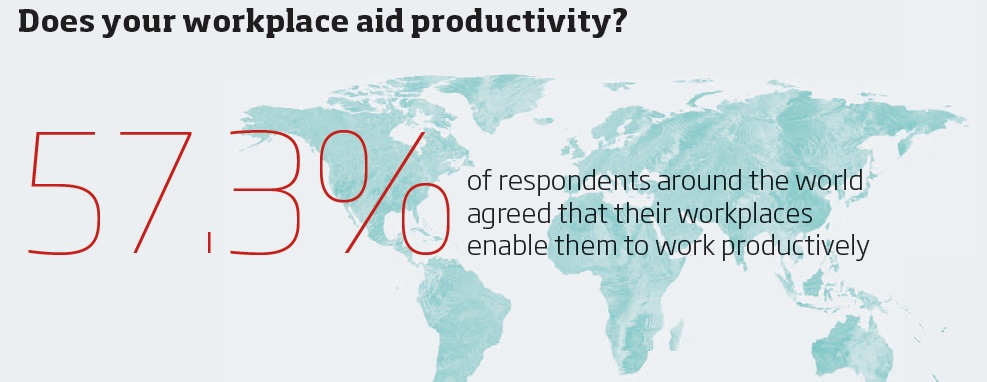By Emanuela Barbiroglio
Nearly half of UK staff say their offices are not up to scratch
Almost half of British employees think their offices are "not fit for purpose", according to a new report.

Leesman’s The Next 250k report reveals that 46% of employees - equivalent to more than 1.3 million UK workers based on ONS employment figures - believe their workplaces do not enable them to work productively, which puts the nation among the top 10 worst-performing countries.
The benchmarking study, which looks at how a poorly planned office can have a negative impact on employees and inhibit their ability to perform, surveyed more than 270,000 employees across more than 2,000 workplaces in 67 countries over the past seven years.
“What this report demonstrates is that there is still more that organisations need to be doing if they’re going to leverage the workplace as a source of competitive advantage and a booster of organisational performance,” says Leesman chief executive Tim Oldman. “We still see far too many workplaces that are simply not fit for purpose and that represent a huge missed opportunity for business leaders.”
Oldman cites the finding that 85% of respondents worldwide - and 87.4% in the UK - say office design is important. The good news is there are some easy measures that firms looking to improve their workspace can implement. These include allowing enough space between work settings, not using office dividers and reducing noise levels - the three factors that have the biggest impact on employees’ ability to work productively, according to the survey.
The report also suggests that employers should focus their efforts on improving conditions for people in the 35 to 44 age bracket who tend to have more complex roles within organisations and consistently record the lowest satisfaction scores.
“Great organisations build a business framework that enables their employees to do their best work and the workplace is integral in this equation,” says Peggie Rothe, who led the research. “Offices are assets - tools in talent management strategies, gears in product innovation, instruments in brand development and organisational performance. The central findings of this study should concentrate attention on how workplace strategies can support business competitiveness, not by cost mitigation but through increasing employee engagement, loyalty and output.”























